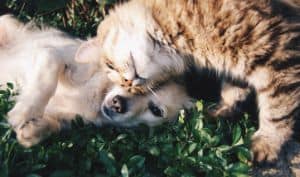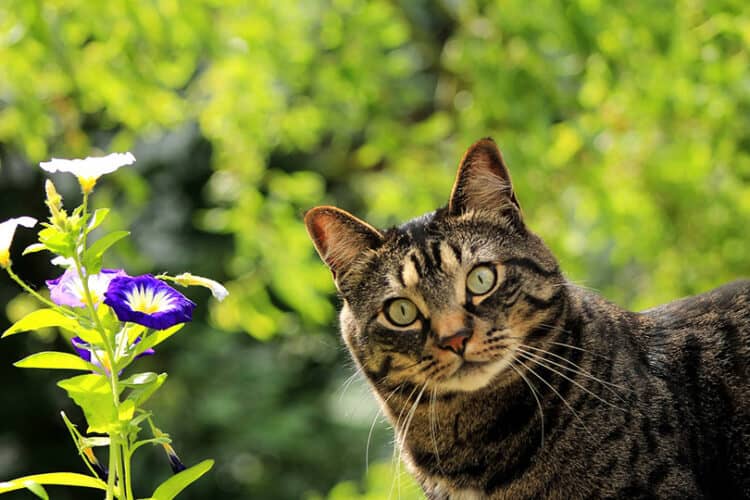It’s a running joke among pet owners that cats are more aloof and dogs are more loyal, but is there any truth to this? Pet owners debate and chuckle about the personalities of cats and dogs, which can be as different as night and day. A new study published in the journal of Animal Behavior and Cognition suggests that cats might not be as loyal as dogs to their owners. Does this mean cats really are indifferent toward their owners?
The 2021 study looked at the behavior of domesticated cats in connection to a third-party interaction that included their owners. The same test was completed on dogs in 2015, and the findings were published in Animal Behaviour. The purpose of the test was to determine if dogs or cats have the ability to evaluate a social interaction taking place around them.

Photo Courtesy: Pexels
The test used four people – the owner, a helpful person, a nonhelpful person, and a control, to participate in a social interaction while the owner’s pet was in the room. The helpful person assisted the pet’s owner in getting an object out of a container. The nonhelpful person rejected the owner’s request for help by turning away. Additionally, a fourth person was used to randomly turn away from the owner when the owner didn’t ask for help. The pets were then offered food from the three test individuals.
Results from the 2015 and 2021 studies showed dogs and cats reacted differently to the test. The dogs avoided taking food from someone who had refused to help their owner, while the cats did not differentiate between someone behaving positively or negatively to their owner.
So what does this mean? Cats don’t care and dogs do?
Researchers believe the results suggest dogs have the ability to eavesdrop in a social situation and act accordingly, much like primates. However, cats may not have this same ability for evaluating a social situation.
“We consider that cats might not possess the same social evaluation abilities as dogs, at least in this situation, because unlike the latter, they have not been selected to cooperate with humans,” the study authors noted, according to Animal Behavior and Cognition. Researchers also noted that further studies need to be done to determine a cat’s social evaluation capacity.

Photo Courtesy: Pexels
Scientists believe cats domesticated themselves, unlike dogs, who are thought to have been domesticated by humans. Research has shown that cats were likely domesticated around 9,000 to 12,000 years ago when agriculture and farming began. Though humans didn’t purposefully take cats in, cats lived alongside humans keeping the rodent population under control. They became barn cats and village cats, but not yet house cats.
Dogs, on the other hand, are hypothesized to have been domesticated roughly 23,000 years ago at the end of the last ice age when the harsh climate brought both people and wolves into close proximity, according to a 2021 genetic analysis published in the Proceedings of the National Academy of Sciences. Humans and wolves had to find a way to survive together, and thus a friendship was born. Researchers speculate this relationship was made out of necessity and mutual respect.
Another analysis dove deeper on why and how dogs were domesticated, and the results pointed to outdoor temperature and disease, women, and hunting as important factors contributing to domestication. Researchers suggested dogs and humans were highly useful to each other during colder months, on hunting trips, and protecting the homestead.

Photo Courtesy: Pexels
These studies suggest a strong reason for such differing personalities in cats and dogs – the domestication process, why and how cats and dogs became our furry family members in the beginning, and what transpired over the years as the relationships grew.
Though today’s domesticated cat shares a bed and couch with their human, their genes are not all that different from their wild counterpart. In a 2017 study of the domesticated cat’s lineage, published in Nature Ecology & Evolution, researchers noted that “wildcats are solitary, territorial hunters and lack a hierarchical social structure, features that make them poor candidates for domestication.”
Furthermore, the authors noted that the domestication process hasn’t really changed most features of today’s cat, unlike dogs, whose features have changed many times over the years, creating a wide variety of breeds.
While cats may not have been domesticated to be as loyal as dogs, plenty of cat owners know just how loyal and loving their own cat can be.
Featured Photo Courtesy: Pexels







